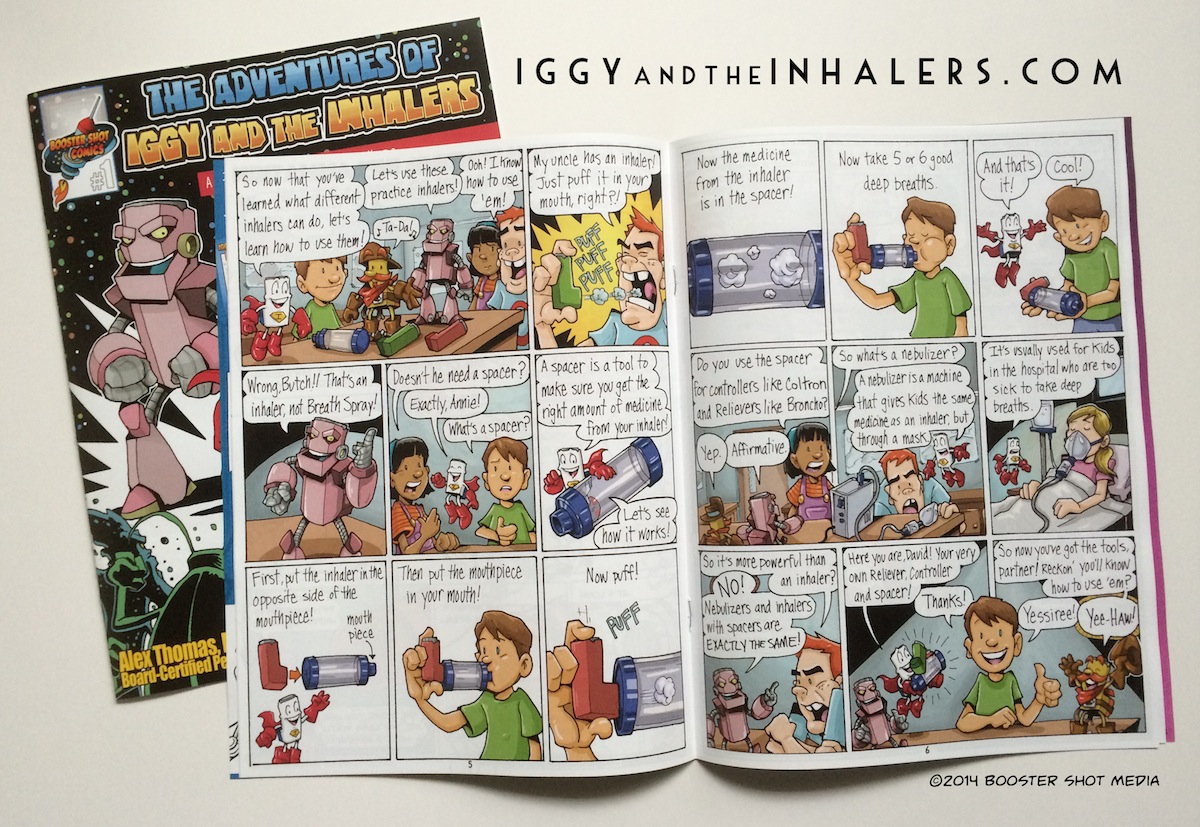News | Friday, 7th August 2015
Comics provide emotional support for patients
Colourful educational format helps explain illnesses

COMICS can provide essential information and emotional support to patients across a range of health conditions, according to a Manchester Met study.
Research suggests that educational comics, which are found in healthcare settings and online, can relay important facts and advice through the use of jargon-free text and images.
Educational comics cover a range of illnesses and conditions such as diabetes, dementia and cancer. They serve to raise awareness, prepare patients for procedures, help with decision-making, promote self-management or just increase understanding and acceptance of a condition.
Research Associate Dr Sarah McNicol says the comics play a more important role than simple information provision. They help patients and their families deal with the social and psychological issues associated with illness.
Reassurance
“The study found that educational comics can support understanding of factual health information through providing simple explanations free from jargon and through the effective use of images,” said Dr McNicol, from Manchester Met's Education and Social Research Institute.
“But through the use of narrative, humour, images, characterisation and informal language, comics can also offer reassurance, empathy and companionship and help family members come to a greater understanding of a condition.
“Something as simple as an educational comic can have a big impact for the wellbeing of patients, helping them and their families to deal with the social and psychological issues associated with illness. They create dialogue between patients, families and healthcare professionals.
“The benefits extend far beyond just information provision.”
Childish?
However, there were some disadvantages associated with educational comics. People without experience of reading serious comics or graphic novels can initially perceive them as childish, making them less unattractive as a reliable source of information.
Dr McNicol also noted that educational comics can be hard to find and their availability needs to be promoted to create greater access.
You can see a range of these comics online at the research project’s webpage.
The study was funded by a Wellcome Trust grant involving 11 interviews with people with health conditions or their relatives.
Dr McNicol is hoping to expand the study to explore the ways in which comics can be used by patients and their families.
________________________________________
Workshop: using health information comics with patients and families
Manchester, 17th September 2015, 1.00-4.00pm (refreshments available from 12.00 noon)
This free half-day workshop is based around findings from the study. In this workshop, the findings of the research and the implications for practice will be discussed, as well as exploring ways to work with health information comics in information services and healthcare settings.
You can book a place at: https://www.eventbrite.co.uk/e/using-health-information-comics-with-patients-and-families-tickets-17806868824.
If you have any questions, please contact s.mcnicol@mmu.ac.uk.




